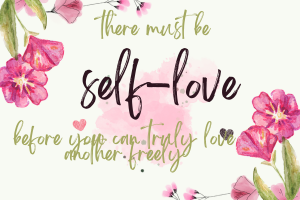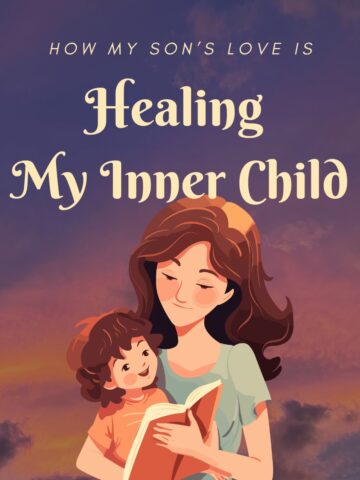Becoming a mother is life-changing—but for many of us, it also stirs up unresolved childhood wounds. In this post, I’m sharing how motherhood triggered deep emotional pain tied to my past, how people-pleasing left me feeling burnt out, and how the teachings of Carl Jung—especially the concepts of the inner child and shadow self—have helped me begin to heal. Whether you’re a new mom or on your own healing path, I hope this story reminds you that you’re not alone.
Jump to:
- Motherhood has a way of opening doors we didn’t even know were closed.
- I Was Parentified Before I Became a Parent
- Motherhood Held Up a Mirror
- People-Pleasing: The Survival Strategy That Became a Cage
- Discovering Carl Jung: Meeting the Inner Child, Shadow, and Self
- How Jungian Psychology Is Helping Me Heal
- The Gift of a Child
Motherhood has a way of opening doors we didn’t even know were closed.
I always wanted to have kids. I felt full of joy and anticipation during pregnancy—though I carried anxiety, especially after discovering a hematoma early on. But what I didn’t expect was just how much deep pain, exhaustion, and loneliness would surface after my baby was born. I didn’t expect motherhood to awaken old wounds I thought I had long buried—a pain I’m only now beginning to understand and gently heal, almost three years into this journey.
I Was Parentified Before I Became a Parent
I’m the eldest of four. My second sibling is just under two years younger, and the other two are more than ten years younger than me. Even when we were small, I was told to give up my toy or food if my younger brother wanted it—because “he’s younger.” As I got older, I was asked to take care of my baby siblings like a second mom while my parents worked. I wasn’t allowed to be a child.
I remember being scolded for not wanting to share, or for choosing to go out with friends instead of babysitting. I was taught to obey. To self-sacrifice. To not question what was asked of me.
Motherhood Held Up a Mirror
When I became a mom at 39, I found myself constantly burnt out, and I kept wondering: Why am I always so depleted? What can I do to be healthy—so I can be present for my baby and live many long years with him?
That’s when I met, again, the little girl inside me —the one who just wanted to be 'good', to be loved, and to not take up too much space. That girl had grown into a woman who said yes too often, overextended herself, and rarely asked for help.
Becoming a mother didn’t just give me a child to care for—it held up a mirror. And what I saw reflected back was someone running on empty, someone who had forgotten how to take care of herself or honor her own needs.
People-Pleasing: The Survival Strategy That Became a Cage
Like many women, I learned early on to be helpful and accommodating to earn love—or at least to avoid anger or disapproval from the adults around us. I picked up on the unspoken rules: Don’t upset anyone. Don’t make waves. Be the “good girl.” Without realizing it, people-pleasing became my default. A survival strategy that shaped my identity.
But parenting from that place is unsustainable.
After 20 hours of labor and an emergency C-section, I came home physically, emotionally, and spiritually broken. And yet, I felt like I had to act like I was fine. There was pressure to breastfeed, to pump every two hours, to be “on” for my baby, all while trying to heal my body and soul.
I was physically depleted—but the emotional weight of trying to do everything “right”—of never letting anyone down, especially not my tiny, beautiful baby—was even heavier.
I couldn’t see that I was already doing a good enough job. My baby was loved, fed, and held. But instead of celebrating those small victories, I felt anxious, guilty, and chronically stressed. I wasn’t parenting from my whole self. I was parenting from my wound—and from fear.
Discovering Carl Jung: Meeting the Inner Child, Shadow, and Self
It wasn’t until I stumbled across the teachings of Carl Jung that something shifted.
Jung believed that we all carry an inner child—a part of us shaped by early experiences and unmet emotional needs. That child doesn’t disappear as we grow. In fact, major life transitions like becoming a parent can reawaken that child, bringing long-suppressed pain to the surface.
He also introduced the concept of the shadow—the parts of ourselves we repress because they feel unacceptable. For me, my shadow held resentment, anger, and a deep need for boundaries I never learned to set.
I spent years trying to be agreeable and good, out of fear. But Jung taught that true healing doesn’t come from denying our pain or ourselves and our needs—it comes from integrating all parts of us. It’s not about becoming perfect. It’s about becoming whole.

How Jungian Psychology Is Helping Me Heal
Here are a few ways I’ve been using Jung’s work to reconnect with myself:
1. Reparenting My Inner Child
When I feel overwhelmed, I pause and ask: What does my inner child need right now?
Often, the answer is rest, reassurance, or permission to say no. I’ve started giving myself what I was once denied—unconditional care. That means saying no when I’m exhausted, even to my husband or my toddler, who both seem to have endless energy. It means claiming time for myself—without guilt.
2. Embracing My Shadow
I no longer shame myself for needing space or feeling irritable. There’s always a reason behind what I feel. Naming my emotions helps me stop projecting them—especially onto my child. It’s a daily practice, but one that brings more peace and clarity.
3. Setting Boundaries Without Guilt
Out of fear, I became a people-pleaser. But I’m learning that setting boundaries are not rejection—they are wisdom, acts of self-love and self-respect. And I want my son to grow up knowing that “no” is not a bad word. That his needs matter—and so do mine.
The Gift of a Child
Motherhood is hard. It’s tender and beautiful, but also lonely and confronting. Still, it has been the most life-changing event I’ve ever experienced.
It forced me to go inward. It asked me to face the parts of myself I’d buried. I couldn’t ignore my pain anymore. I had to address it—to be whole and healthy for my son. Maybe that’s still a people-pleasing reason. But this time, it’s one that’s leading me toward self-love.
And something amazing is happening.
In learning to say no, in setting boundaries, I’ve discovered: my son still loves me. He still wants to be near me. I think he sees me more clearly than I’ve ever seen myself. He’s helping me believe that I can love myself and love others. That it’s not either-or.
“Until you make the unconscious conscious, it will direct your life and you will call it fate.” — Carl Jung
I’m trying not to let old wounds write my story anymore.
I’m trying to write a new one—from the inside out.
To all the moms walking this tender path: I see you. You are not alone. 💛
Has motherhood stirred up old emotions or patterns for you too? I’d love to hear your story—feel free to share in the comments.


Comments
No Comments